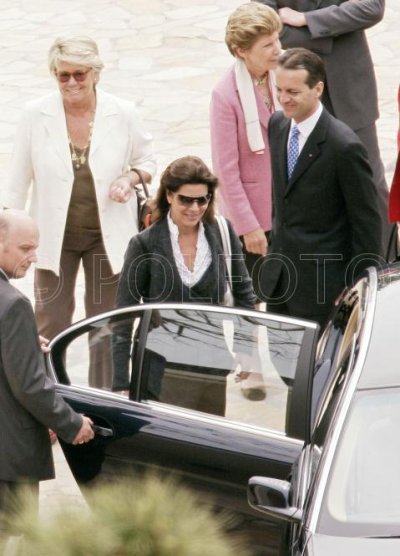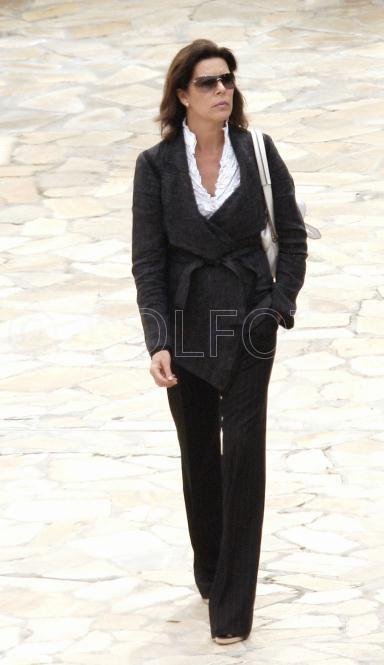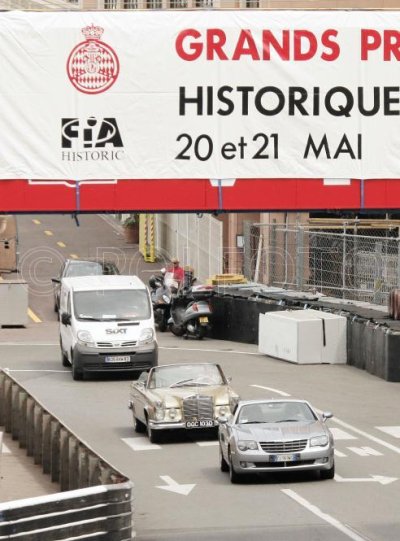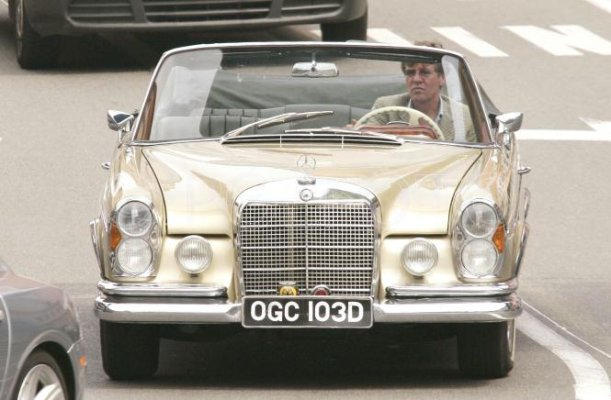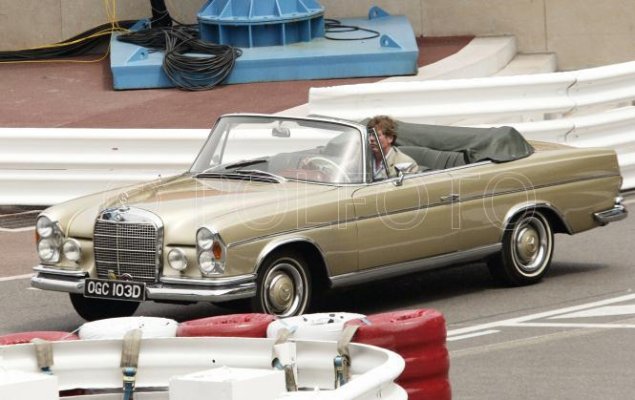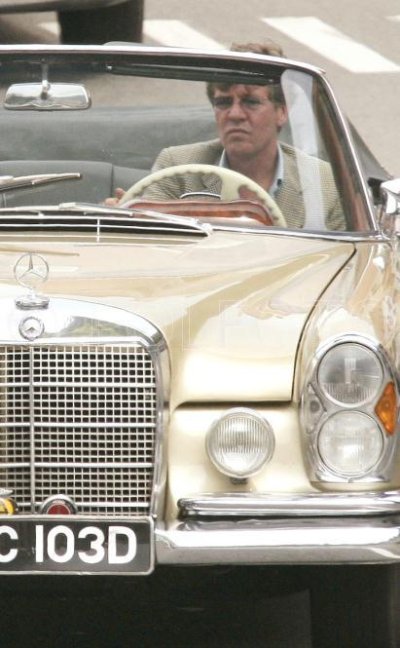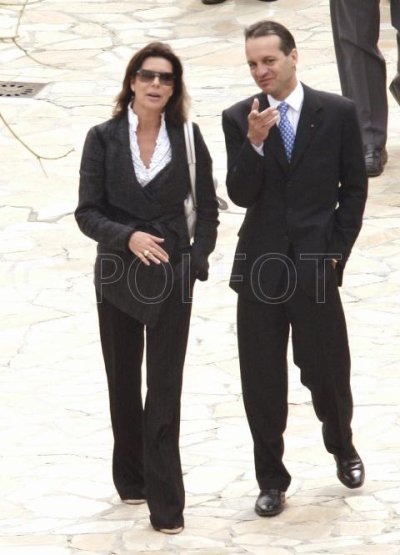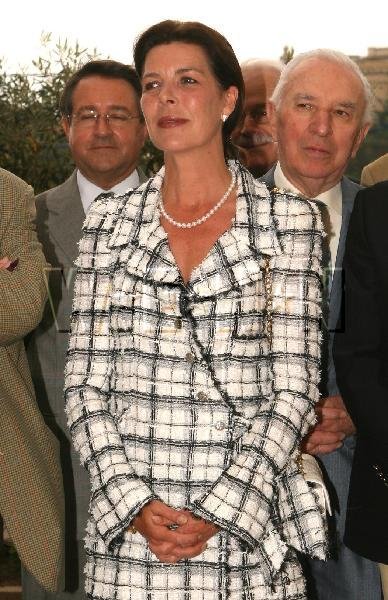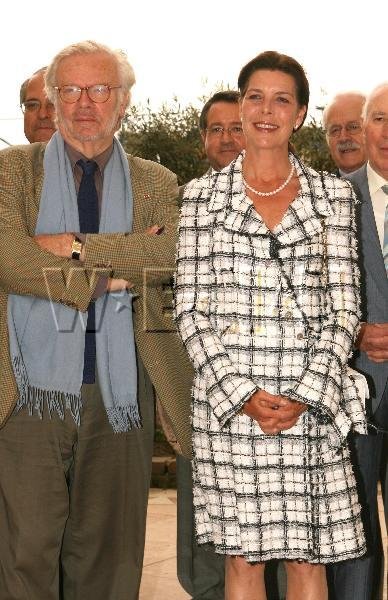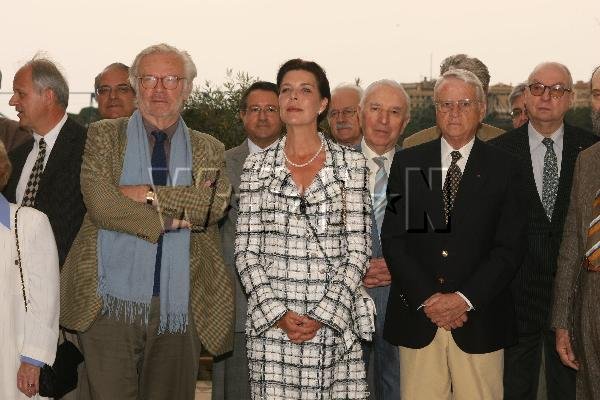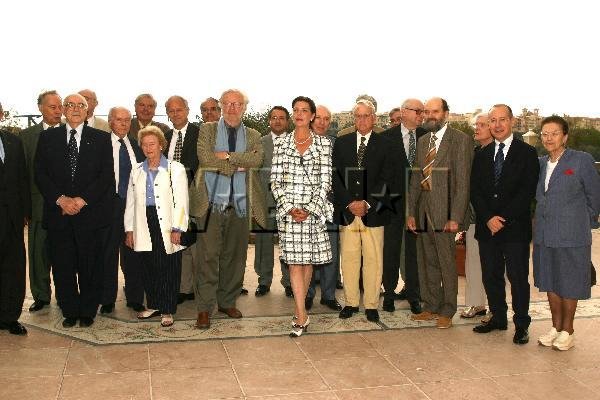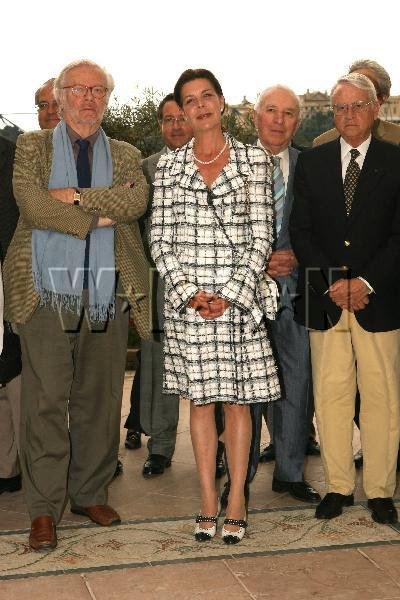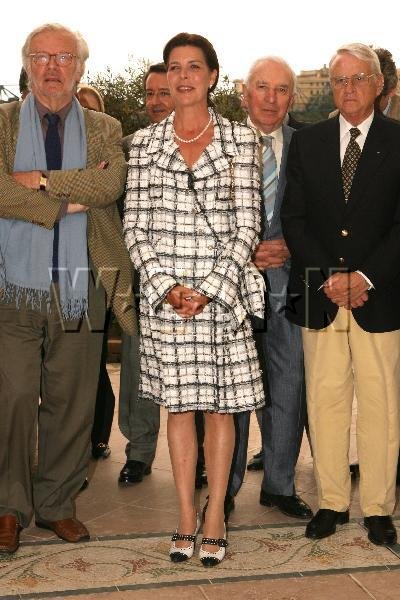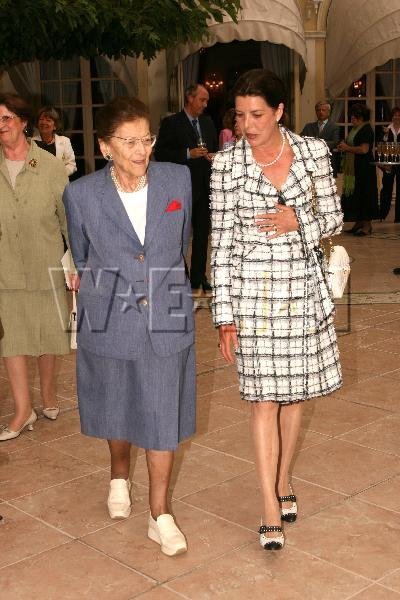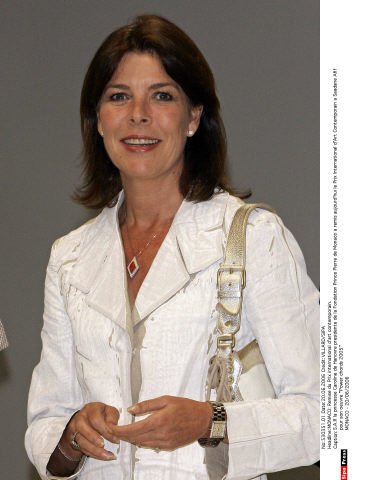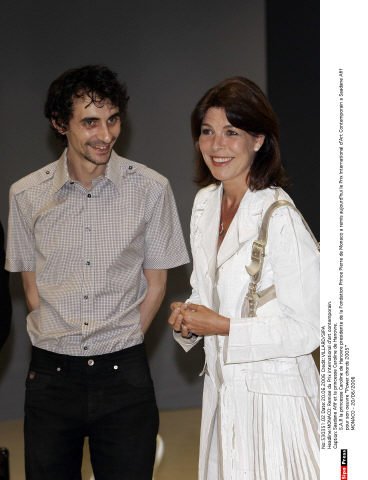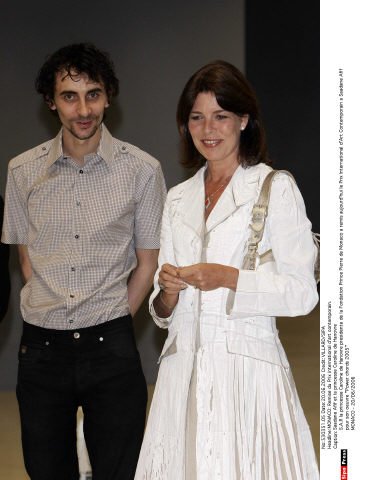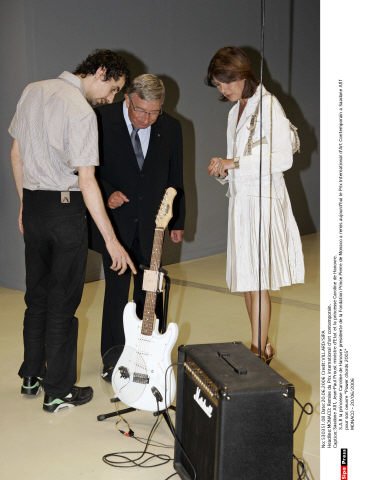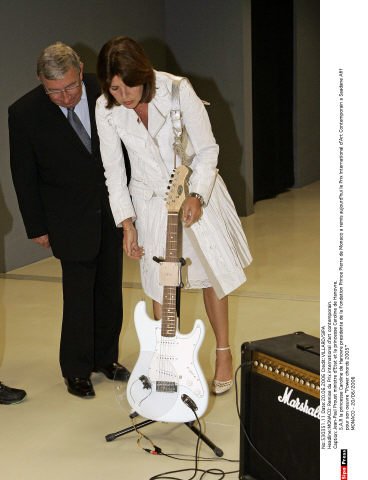tbhrc
Majesty
- Joined
- Apr 11, 2005
- Messages
- 9,349
- City
- *Ruhrgebiet*
- Country
- Germany
Here is the speech Princess Caroline gave during the conference 'Europe For And With Children' in Monaco - April 4th, 2006:
Her Royal Highness Princess Caroline of Hanover
Ladies and gentlemen, On my way here this morning, my thoughts were filled with the suffering and injustice which so many of the world’s children have to endure, victims of poverty, famine and conflict, but also of the violence of Mafia rings, which escape punishment for their crimes by circumventing laws and borders alike.
Many also suffer from prejudice, racism and the backsliding of certain societies in which moral references are becoming blurred and the fundamental values of human rights and the rule of law – the Council of Europe’s values – are increasingly spurned, ignored or flouted.
Some are also victims, I am afraid to say, of their own families, of the alcoholism and unhappiness of parents lost in the moral maze, and of rules, including school rules, that are outdated or poorly interpreted. And such brutality is unleashed upon some children that it may even result in their deaths.
They suffer because of our thoughtlessness, and we need to react now, to spare them further suffering.
The more dependent, weak and vulnerable children are, the more they need respect, for themselves, and for their rights to life, to a family, to care and to education, regardless of their appearance, origin or status.
Let us return for a moment to our own childhood, to our first memories, to the doubts we felt and to the fears and anxieties that sometimes dwelt in us, to our outbursts of emotion and to the dreams that we nurtured. Let us recall the marvellous bond of trust we had with our parents, the affection that we so naturally felt for our friends and family, and the happy innocence which guided our first steps into the web of human relationships. How ever-present our need for protection and tenderness was at that stage! No child has any desire to be ill, to suffer, or to be hungry, beaten, abused, sold or killed.
We political leaders, representatives of intergovernmental and non-governmental organisations, experts on, and campaigners for, the promotion and protection of children’s rights, and journalists and communications professionals are gathered here in Monaco today to hear one another’s views and listen attentively to the children and young people who have joined us, some of whom worked so hard yesterday, and again this morning. It is important, after all, for the children and young people who are taking part in this meeting to be listened to and heard, and for us to take their views into account.
We are not here to persuade one another of the validity of the causes that each of us has chosen to defend, or to reflect once again on the plight of the world, on the benefits and disadvantages of globalisation or on climate change, but to work together within the bounds of our own resources, experiences and commitments to seek practical solutions to the various very well-defined problems highlighted with such clarity and relevance in the reports drawn up for this conference by the Council of Europe’s experts and by other specialists.
I thank you for the confidence you showed in me by asking me to preside over the proceedings, which I will do with conviction, paying full heed to your concerns, aspirations and recommendations.
I will do this as much in my capacity as a champion of children’s cause as in my capacity as a mother, whose life and choices are guided chiefly by the desire to protect my family and its stability, and to secure the happiness and the future of my children.
My position as president of the World Association of Children’s Friends, AMADE-Mondiale, since 1993 has taught me how dramatic a situation many of the world’s children are in and how difficult and complex it is, despite all the laws and international instruments that our governments have adopted, to protect children against violence and abuse of all types, including the sexual abuse inflicted on all too many of them.
As was the case with the Convention on Anti-Personnel Mines or the International Criminal Court, I would like a coalition of international associations and organisations to be set up as quickly as possible to encourage and support those governments which undertake to adopt specific measures to prevent the most serious crimes committed against children from going unpunished – measures such as extending or doing away with the time limits for the prosecution of offences, stepping up judicial co-operation or adopting a model or framework law to strengthen action against trafficking in children, including that done with the help of the Internet.
The three-year programme which the Council of Europe is launching here in Monaco provides an outstanding opportunity to increase awareness of the challenges we face and form an “alliance of wills” to implement, promptly and effectively, the measures which we can set out in our conclusions.
I hope that this programme will prompt us to establish a fully-fledged co-operation network to help us to continue and intensify the campaigns we have been conducting, sometimes with very little publicity, often for many years and occasionally with an unpleasant feeling that we stand alone – a feeling that can border on disillusion at times and induce bitterness.
It is our duty to share our experiences, to work together to pinpoint the reasons for our successes and failures and, during the round table sessions, to hold exchanges of views which I firmly believe will enable us to make progress in many areas.
This conference may be a chance to learn more about recent initiatives or innovative projects currently being carried out by governments and charitable humanitarian organisations and associations.
AMADE-Mondiale, over whose destiny I preside, has prepared for your attention an information document describing our main activities in Africa, Asia and Europe, which are often conducted with the assistance of our local offices and as part of joint projects involving other associations.
I would like briefly to draw your attention to three of these activities to which I am particularly attached:
· The “New smile on life” programme: This project is intended, through surgeon training, to increase the number of operations on children whose cleft palates prevent them from being properly breastfed and mark them out for exclusion and discrimination.
· “Schools opened to the wind”: These schools are for children who live on the streets, providing them in their home areas not just with education but also with meals and appropriate care.
· “Alliance for bases clean-up” (ABC): The aim of this programme, based on information campaigns, is to achieve a total clean-up of US military bases and the elimination of the dangerous toxic waste around theses sites while helping those children whose illnesses have been caused by the resultant contamination.
In accordance with the wishes of my mother Princess Grace, who founded the association and was its first president, AMADE-Mondiale also endeavours to encourage research and discussion on subjects raised by scientific and technological progress, in the light of fundamental ethical and moral principles.
It was as a result of this that, in April 2000, following painstaking preparation and extensive consultation, AMADE-Mondiale teamed up with Unesco to hold an international colloquy attended by leading figures from the world of genetics, medicine, research and law.
The resulting Monaco Statement: Considerations on Bioethics and the Rights of the Child and the proceedings of the colloquy were both published.
More recently, in April 2003, the Government of Monaco helped to hold an international round table attended by experts, lawyers, specialists and diplomats on “Crimes against the child, crimes against humanity”. This provided an opportunity to investigate the various approaches that might be considered to combating impunity for certain particularly serious violations of the rights of the child.
My brother, Prince Albert II, also spoke on this subject in May 2002 at the Extraordinary Session of the United Nations General Assembly on children, drawing world leaders’ attention to the matter in the following terms:
“Is it not our duty to try to improve the tools at our disposal, including legal instruments, removing the current limitations of time and borders on prosecution and punishment of these unnatural crimes against children by classifying them as crimes against humanity?”
I wish you an outstanding and rewarding time in Monaco and sincerely hope that our work and the Council of Europe’s three-year programme will be successful. I would also like to congratulate and thank the Council for taking this initiative and for showing such an exemplary and steadfast commitment to promoting and protecting the rights of the child.
As my father, the late lamented Prince Rainier III, was in the habit of saying, you do not have to be big to do great things or to act in large numbers to enjoy success.
We have a duty to succeed in the task that lies ahead of us. As Simone de Beauvoir wrote, isn’t every newborn child a god taking the form of a person?
Few more pics from that site:
Pic 1 Pic 2 Pic 3 Pic 4 Pic 5 Pic 6 Pic 7
Source: Council of Europe
Her Royal Highness Princess Caroline of Hanover
Ladies and gentlemen, On my way here this morning, my thoughts were filled with the suffering and injustice which so many of the world’s children have to endure, victims of poverty, famine and conflict, but also of the violence of Mafia rings, which escape punishment for their crimes by circumventing laws and borders alike.
Many also suffer from prejudice, racism and the backsliding of certain societies in which moral references are becoming blurred and the fundamental values of human rights and the rule of law – the Council of Europe’s values – are increasingly spurned, ignored or flouted.
Some are also victims, I am afraid to say, of their own families, of the alcoholism and unhappiness of parents lost in the moral maze, and of rules, including school rules, that are outdated or poorly interpreted. And such brutality is unleashed upon some children that it may even result in their deaths.
They suffer because of our thoughtlessness, and we need to react now, to spare them further suffering.
The more dependent, weak and vulnerable children are, the more they need respect, for themselves, and for their rights to life, to a family, to care and to education, regardless of their appearance, origin or status.
Let us return for a moment to our own childhood, to our first memories, to the doubts we felt and to the fears and anxieties that sometimes dwelt in us, to our outbursts of emotion and to the dreams that we nurtured. Let us recall the marvellous bond of trust we had with our parents, the affection that we so naturally felt for our friends and family, and the happy innocence which guided our first steps into the web of human relationships. How ever-present our need for protection and tenderness was at that stage! No child has any desire to be ill, to suffer, or to be hungry, beaten, abused, sold or killed.
We political leaders, representatives of intergovernmental and non-governmental organisations, experts on, and campaigners for, the promotion and protection of children’s rights, and journalists and communications professionals are gathered here in Monaco today to hear one another’s views and listen attentively to the children and young people who have joined us, some of whom worked so hard yesterday, and again this morning. It is important, after all, for the children and young people who are taking part in this meeting to be listened to and heard, and for us to take their views into account.
We are not here to persuade one another of the validity of the causes that each of us has chosen to defend, or to reflect once again on the plight of the world, on the benefits and disadvantages of globalisation or on climate change, but to work together within the bounds of our own resources, experiences and commitments to seek practical solutions to the various very well-defined problems highlighted with such clarity and relevance in the reports drawn up for this conference by the Council of Europe’s experts and by other specialists.
I thank you for the confidence you showed in me by asking me to preside over the proceedings, which I will do with conviction, paying full heed to your concerns, aspirations and recommendations.
I will do this as much in my capacity as a champion of children’s cause as in my capacity as a mother, whose life and choices are guided chiefly by the desire to protect my family and its stability, and to secure the happiness and the future of my children.
My position as president of the World Association of Children’s Friends, AMADE-Mondiale, since 1993 has taught me how dramatic a situation many of the world’s children are in and how difficult and complex it is, despite all the laws and international instruments that our governments have adopted, to protect children against violence and abuse of all types, including the sexual abuse inflicted on all too many of them.
As was the case with the Convention on Anti-Personnel Mines or the International Criminal Court, I would like a coalition of international associations and organisations to be set up as quickly as possible to encourage and support those governments which undertake to adopt specific measures to prevent the most serious crimes committed against children from going unpunished – measures such as extending or doing away with the time limits for the prosecution of offences, stepping up judicial co-operation or adopting a model or framework law to strengthen action against trafficking in children, including that done with the help of the Internet.
The three-year programme which the Council of Europe is launching here in Monaco provides an outstanding opportunity to increase awareness of the challenges we face and form an “alliance of wills” to implement, promptly and effectively, the measures which we can set out in our conclusions.
I hope that this programme will prompt us to establish a fully-fledged co-operation network to help us to continue and intensify the campaigns we have been conducting, sometimes with very little publicity, often for many years and occasionally with an unpleasant feeling that we stand alone – a feeling that can border on disillusion at times and induce bitterness.
It is our duty to share our experiences, to work together to pinpoint the reasons for our successes and failures and, during the round table sessions, to hold exchanges of views which I firmly believe will enable us to make progress in many areas.
This conference may be a chance to learn more about recent initiatives or innovative projects currently being carried out by governments and charitable humanitarian organisations and associations.
AMADE-Mondiale, over whose destiny I preside, has prepared for your attention an information document describing our main activities in Africa, Asia and Europe, which are often conducted with the assistance of our local offices and as part of joint projects involving other associations.
I would like briefly to draw your attention to three of these activities to which I am particularly attached:
· The “New smile on life” programme: This project is intended, through surgeon training, to increase the number of operations on children whose cleft palates prevent them from being properly breastfed and mark them out for exclusion and discrimination.
· “Schools opened to the wind”: These schools are for children who live on the streets, providing them in their home areas not just with education but also with meals and appropriate care.
· “Alliance for bases clean-up” (ABC): The aim of this programme, based on information campaigns, is to achieve a total clean-up of US military bases and the elimination of the dangerous toxic waste around theses sites while helping those children whose illnesses have been caused by the resultant contamination.
In accordance with the wishes of my mother Princess Grace, who founded the association and was its first president, AMADE-Mondiale also endeavours to encourage research and discussion on subjects raised by scientific and technological progress, in the light of fundamental ethical and moral principles.
It was as a result of this that, in April 2000, following painstaking preparation and extensive consultation, AMADE-Mondiale teamed up with Unesco to hold an international colloquy attended by leading figures from the world of genetics, medicine, research and law.
The resulting Monaco Statement: Considerations on Bioethics and the Rights of the Child and the proceedings of the colloquy were both published.
More recently, in April 2003, the Government of Monaco helped to hold an international round table attended by experts, lawyers, specialists and diplomats on “Crimes against the child, crimes against humanity”. This provided an opportunity to investigate the various approaches that might be considered to combating impunity for certain particularly serious violations of the rights of the child.
My brother, Prince Albert II, also spoke on this subject in May 2002 at the Extraordinary Session of the United Nations General Assembly on children, drawing world leaders’ attention to the matter in the following terms:
“Is it not our duty to try to improve the tools at our disposal, including legal instruments, removing the current limitations of time and borders on prosecution and punishment of these unnatural crimes against children by classifying them as crimes against humanity?”
I wish you an outstanding and rewarding time in Monaco and sincerely hope that our work and the Council of Europe’s three-year programme will be successful. I would also like to congratulate and thank the Council for taking this initiative and for showing such an exemplary and steadfast commitment to promoting and protecting the rights of the child.
As my father, the late lamented Prince Rainier III, was in the habit of saying, you do not have to be big to do great things or to act in large numbers to enjoy success.
We have a duty to succeed in the task that lies ahead of us. As Simone de Beauvoir wrote, isn’t every newborn child a god taking the form of a person?
Few more pics from that site:
Pic 1 Pic 2 Pic 3 Pic 4 Pic 5 Pic 6 Pic 7
Source: Council of Europe


